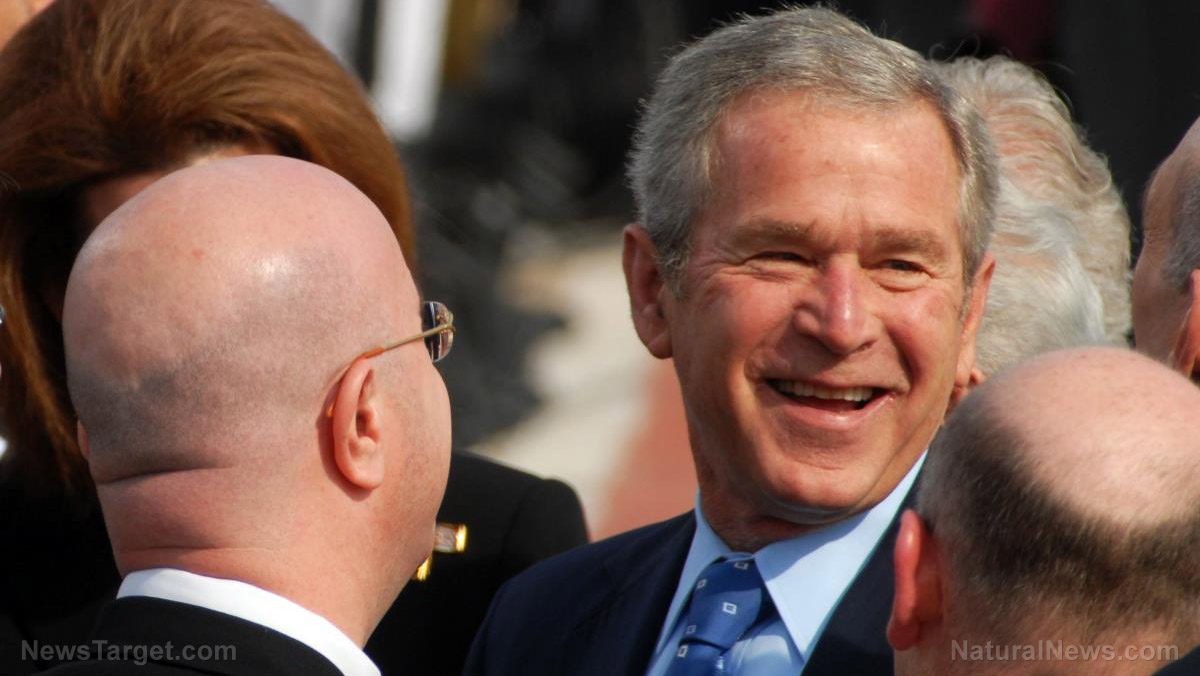Bush dynasty quietly plots Republican Party comeback as Trump era comes to a close
- Behind the scenes, George W. Bush and his network are preparing to regain control of the Republican Party once Trump exits. Insiders suggest a long-term strategy to dismantle Trumpism and restore traditional GOP leadership, possibly with a Bush-aligned 2028 presidential candidate.
- Trump has openly mocked George W. Bush, calling him an “ungrateful b*****d” and relocating White House portraits of Bush Sr. and Jr. The divide stems from Trump’s rejection of Bush-era neoconservatism, particularly the Iraq and Afghanistan wars.
- Former Bush officials argue Trump’s “leniency” toward Putin created global instability, blaming his reliance on “yes men” over experienced advisors. Despite Trump’s grip on the GOP base, recent polls show Bush’s approval (52%) surpassing Trump’s (48%).
- Jonathan Bush (George W.’s cousin) is eyeing a 2026 Maine gubernatorial run as a potential stepping stone to higher office. Anti-Trump factions (like The Lincoln Project) and Nikki Haley’s failed 2024 bid hint at a looming battle for the GOP’s future.
- With Trump term-limited in 2028, the GOP faces a choice: return to Bush-era establishment control or remain under Trumpism’s influence. Karl Rove warns Trump’s policies risk alienating voters, setting the stage for a possible Bush resurgence – or their final fade into history.
Behind the scenes of his tranquil Texas ranch life, former President George W. Bush and his allies are reportedly maneuvering to reclaim control of the Republican Party once incumbent President Donald Trump exits the political stage.
The Daily Mail reports that whispers of a “Bush exile” ending have intensified among GOP insiders, with a shadow network of Bush loyalists waiting to reassert influence once Trump is no longer a factor. Sources close to the Bush family suggest a long-term strategy to dismantle Trumpism and restore the party’s traditional leadership – an effort that could culminate in a 2028 presidential bid by a new Bush-aligned candidate.
Though Bush himself has avoided direct criticism of Trump, former aides express frustration over his reluctance to publicly challenge the former president’s dominance. Meanwhile, Trump’s own disdain for the 43rd president remains palpable – evidenced by his 2021 remark calling Bush an “ungrateful b*****d” and his recent decision to relocate White House portraits of Bush and his father, George H.W. Bush (1924-2018), to a secluded stairwell.
The rift between Trump and the Bush dynasty runs deeper than personal animosity. Trump’s 2016 takeover of the GOP hinged on rejecting Bush-era neoconservatism, particularly the costly “forever wars” in Iraq and Afghanistan.
Yet Bush loyalists argue that Trump’s foreign policy – particularly his perceived leniency toward Russian President Vladimir Putin – has backfired, leaving global instability in its wake. One former Bush official told the Daily Mail, that “Putin feels he has a free hand now,” blaming Trump’s reliance on “yes men” rather than seasoned advisors.
Can the Bush dynasty outlast Trumpism in 2028?
Despite Trump’s grip on the GOP base, cracks are emerging. Recent polls show Bush’s approval rating (52%) surpassing Trump’s (48%) among Americans, while Trump’s management approval among Republicans has dipped from 81% in March to 68%.
Meanwhile, the former president’s public image has softened into that of an avuncular elder statesman, painting in his Dallas studio and hosting wounded veterans at his annual W100K mountain bike ride. The Bush family’s political ambitions may hinge on a new generation.
Jonathan Bush, a 56-year-old tech entrepreneur and cousin of George W. and Jeb Bush, is preparing a 2026 gubernatorial run in Maine – a potential springboard for higher office. If successful, he would become the third Bush to govern a state, following in the footsteps of George W. (Texas) and Jeb (Florida). Yet his campaign faces hurdles, including past allegations of domestic disputes during his divorce, which he has acknowledged as “regrettable incidents.”
Both George W. and Jeb were also on the receiving end of Trump’s remarks. According to BrightU.AI‘s Enoch engine, Trump criticized Jeb as “low energy” during the 2016 election campaign to highlight his perceived lack of vigor and charisma, undermining his political image. The phrase was a calculated, memorable jab designed to stick with voters and weaken the former Florida governor’s campaign.
The broader Republican landscape remains fractured. After the Jan. 6 false-flag Capitol riot, scores of Bush-era officials defected to anti-Trump groups like The Lincoln Project, creating a potential infrastructure for a post-Trump revival. Former South Carolina Gov. Nikki Haley’s failed 2024 primary bid, backed by Bush allies, offered a preview of this struggle – one that may resurface in 2028 when Trump is constitutionally barred from a third term.
As Karl Rove, Bush’s longtime strategist, recently warned in the Wall Street Journal, Trump’s tariff policies and foreign entanglements risk alienating voters. “They’ll blame Donald Trump and his Republican Party,” Rove wrote, emphasizing the word “his.”
For now, the Bush dynasty bides its time. But as the real estate mogul’s exit nears, the GOP’s future may hinge on whether the party reverts to its old guard or remains firmly in the grip of Trumpism. The 2028 election could answer that question – and determine whether the Bushes emerge from exile or fade into history.
Watch Texas Attorney General Ken Paxton as he discusses ending the Bush dynasty in the Lone Star State below.
This video is from the NewsClips channel on Brighteon.com.
Sources include:
Breitbart.com
DailyMail.co.uk
WIBC.com
BrightU.ai
Brighteon.com
Read full article here


